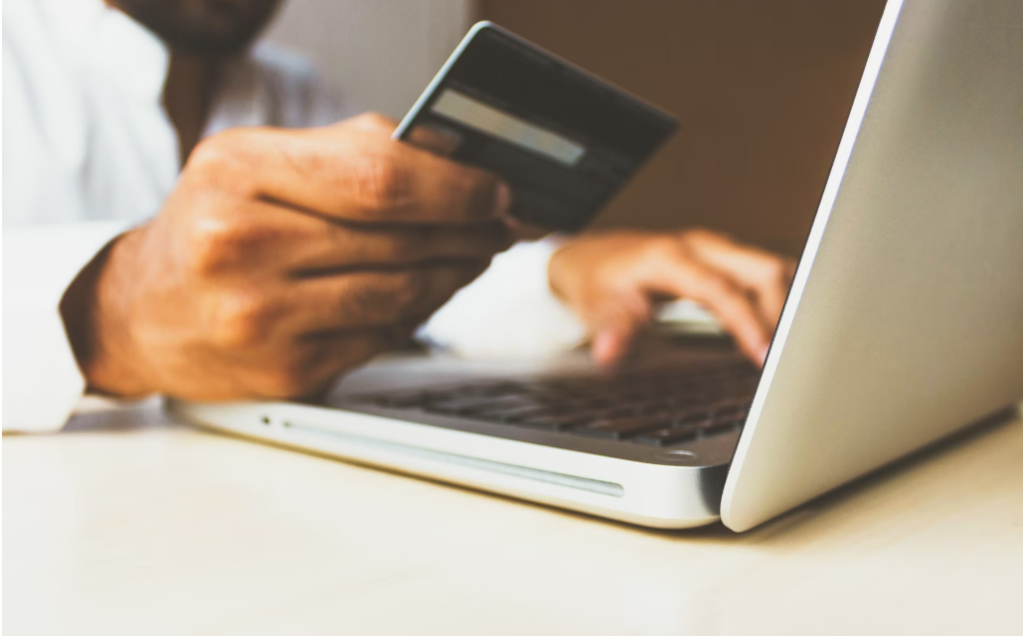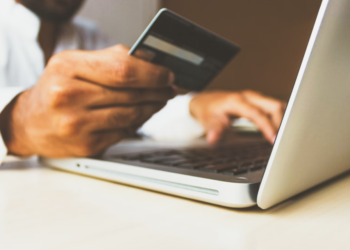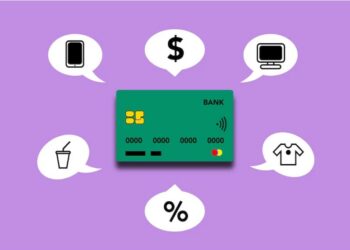Nowadays, many people shop online for one reason or another. Thanks to the rapid rise of technology, shopping online has become a preferable option for many people over physical shopping. Online sites are a great place to find the best bargains, compare prices, and get items delivered straight to your front door. Sometimes, even returns are easy with the right shops. In summary, online shopping is one of the most useful things to come out of the internet.
However, the ease of online shopping also comes with a significant risk of financial fraud. Whenever you shop online, there’s a potential risk that a cybercriminal is stalking you. One moment of weakness, and you could lose your funds in the blink of an eye. Hence, it is important to know how to identify and protect yourself from these online scammers.
In this post, we offer a beginner’s guide to online shopping, sharing the best tips for safer online shopping. Let’s get into it.

What is online shopping?
In simple terms, online shopping is the activity or action of searching for and buying products or services over the Internet. It involves going online, landing on a seller’s website, selecting something, and arranging for its delivery. The buyer can either pay for the goods or service online with a credit or debit card or pay upon delivery.
Online shopping has become more popular because of the benefits it offers. Here are a few reasons why people are more likely to purchase items online:
- You can order pretty much anything online ranging from food to clothes, gadgets, and so on.
- Online shopping lets you browse through multiple stores at once.
- There’s usually a variety of discounts to enjoy with online shopping.
- You can shop at any time of the day.
Tips for Safer Online Shopping
The following are basic guidelines to follow to reduce the risk of fraud and enjoy a safer online shopping experience.
Shop on Only Popular or Familiar Websites
You can find everything and anything online so you should be careful when selecting a shop to buy from. Online search results can lead you to a variety of stores but some of these stores are not legit. Hence, you should look out for only popular and legitimate stores. For example, Jumia, Konga, Amazon, Walmart, and so on are popular stores where you can shop for a wide variety of items.
Research a Seller Before Buying
If you come across a seller that’s not so popular, do your due diligence before putting down your card details. You can check for reviews online before going ahead to patronize the seller. Google is helpful when it comes to getting online reviews. However, keep in mind that online reviews can be misleading. If you see nothing but positive feedback all through, you should be cautious as well. In this case, follow your instincts before making a decision.
Additionally, always ensure that you get a concrete address and the working phone number of the seller. This allows you to have a place to take your complaints in case of discrepancies.

Avoid Putting Personal Information on Shopping Forms
There is no reason why an online shopping site needs to know your birthday, middle name, bank verification number, or any other personal information. Be wary of sites asking you for information beyond your payment method and mailing address. It is easier to steal your identity when scammers have too much information about you. As much as possible, try to give up a little personal data only when it is necessary. This is because even major sites are prone to breaches, so it’s important to keep your information private.
Don’t Use Your Debit/Credit Card to Shop Online
Scammers get direct access to your bank funds when your credit card is compromised. So, it is wise to use a virtual card that offers one-time use when shopping online. Fortunately, payment service providers like Changera offer virtual cards that work on all websites without hassle.
Also, using a trusted payment source ensures you’ll receive your rightful refund if anything goes wrong during shopping.

Check for the Website’s Security Certificate
One way to know that your payment is safe is through the website’s security certificate. You can check the website’s authenticity by checking the payment screen. If the website is safe, you should be able to see a green padlock on the left side of the website address in your browser window. This green padlock means that the website you’re viewing has a valid security certificate.
Always Keep Records
Always save records of your online transactions, which should include the receipt, order number, product description, and price. You will also want to save any emails you send or receive from a seller. They may come in handy if there’s a problem later on.
Don’t Use Public Wi-Fi
In theory, you can make your online purchases from anywhere in the world. However, in practice, it’s best to do your online shopping at home. This is because shared computers and public Wi-Fi networks can expose you to digital snoopers. These snoopers can steal valuable data such as passwords, credit card details, and personal information.
Takeaway
Online shopping has become the order of the day. Hence, it is important to know how to navigate shopping over the Internet without falling victim to fraud. If you’ve ever been a victim of identity theft or online fraud, this post will be helpful to prevent future attacks.
Additionally, if you’re looking for the most secure payment method, Changera’s virtual card is your best bet. The card is accepted on all websites across the globe, and you don’t need to worry about transaction limits. Everyone deserves peaceful shopping, and that’s exactly what we offer at Changera.
Download the Changera app from the Google Play Store or the App Store to get a virtual card today.







Discussion about this post